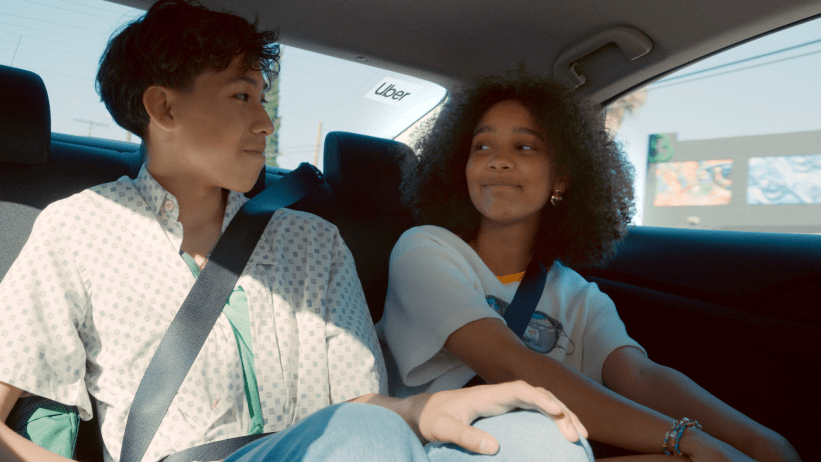
For 35 years, clinical psychologist, parenting coach, and best-selling author Dr. Wendy Mogel has advised parents about rearing resilient, resourceful, and enthusiastic children. In her books The Blessing of a Skinned Knee: Using Jewish Teachings to Raise Self-Reliant Children (published in 2008) and The Blessing of a B Minus: Using Jewish Teachings to Raise Resilient Teenagers (published in 2011), Mogel counsels parents on preparing their kids for the challenges of adolescence and adulthood.
She is currently interviewing middle school students, neuroscientists, and school nurses for her next parenting book, which is slated to be about the art of conversation in an age of digital distraction (chapters will cover talking to infants, babies, young children, teenagers, your spouse, your partner or ex, your parents and in-laws, teachers, school administrators, coaches, doctors, and more).
And in the midst of it all, we spoke with her about some of the timeless lessons from her first books and about just what is normal when it comes to indulgence, growing up, and some of the nuances of emotional development.
It may be an overstatement, but kids today seem to have it pretty easy. Is it wrong for a parent to be a little happy when their kids go through a rough spot—a new school, having to make new friends, or not being very good at a musical instrument, for example?
These parents aren’t evil, they’re smart. Since we’re raising children to survive on their own, to “learn how to swim” as it says in the Talmud, they need to practice two skills before they go off to college. One is managing the wave pattern of emotion: Feelings go down, then you realize you’re hungry or lonely or tired, you push yourself to take care of those needs and…you feel better! It’s a formula that can only be understood through trial and error—through experience—so it’s good to start young. The other essential skill is learning how to make a place for yourself in a new environment. Through exposure to lots of unfamiliar and varied—but not overwhelming—experiences children slowly learn that many worthwhile new activities and environments start out rough—you feel shy, discouraged, inept or hopeless before you figure out how to fit in and that you may not want or need to be in the most popular group. You discover that first feelings don’t endure; they’re not an objective evaluation or an accurate forecast of how you are going to feel once you find your place. So it’s good for children, for example, to experience adjustment to a new school, or camp or team. These transitions will occur all through their lives. For example, adjusting to middle school is like adjusting to a new job. It’s often the parents who struggle to find the courage to suffer through the discomfort.
 How can you tell if you’re being overindulgent versus under-indulgent. How can parents strike that balance?
How can you tell if you’re being overindulgent versus under-indulgent. How can parents strike that balance?
Kids all confuse what they want with what they need. They’re naturally persuasive, and you’re naturally a push-over because you love them and you want to see them smiling. If you aim towards the average practices of privileged families, you will be overindulging your kid. Advertisers know more about child development than any university psychology department. They spend money studying how to bypass you and go straight to the child. It’s your kids’ job to lobby for things they don’t need. We don’t need to be the least bit mad at them for doing that. They’re supposed to try to get lots of goods and services out of us. And we’re tasked with drawing a sensible line. What I usually recommend is to find a parent whose children are just a little bit older than yours who are turning out nicely—kids who are pretty wholesome, pretty grateful, not too entitled, not too anxious—and use that mom or that dad as a mentor. The default position now is overindulgence, overprotection, over-scheduling and expecting kids to be perfect in every single area, even those in which they have no talent or interest.
You’ve said that kids shouldn’t be expected to be experts at everything because parents aren’t. How do you know when it’s right to give into a kid who has been doing an activity for a while and wants to quit?
I always like to look at the big picture of a child’s schedule. There was an article in The New York Times recently about the epidemic of severe sleep deprivation in teens and how this deficit affects every aspect of their lives. For example, it take some teens five hours to do three hours of homework because they can’t focus… Sometimes a child wants to quit because that child is simply over-scheduled. Another cause is “achievement anxiety” stemming from the common habit of overpraising children. If we, since the child was born, say: “Oh, look it’s incredible. She breathed in, and then she breathed out right after that. She’s a genius!” And if we treat any little thread or hint of talent like it’s potentially Nobel Prize- or Oscar-worthy, then kids resist trying
Should it make us feel better when our teens or children get really mad at us? Are we doing our jobs if they get really, really ticked off at us?
Toddlers and little kids, they go to preschool. They hold it together the whole day, they sit in circle time, they sing the dopey songs, they have to clean up after their snack, and they come home and feel free to melt down with the people they love and trust the most. Home is the soft landing. It’s exactly the same thing with teens. They go to middle or high school. They don’t know what part of their body grew in the night. They wake up in the morning and suddenly their neck is longer in proportion to their head, they get to the cafeteria and their friends who were best friends since preschool or 7th grade are now sitting at another table because your child is wearing the wrong pair of skinny jeans. And then they have to take Algebra II, and they are exhausted because they only got six hours of sleep instead of the nine hours they need. So just like toddlers, they take it out on people they love and trust. If you take it personally, because you believe your worth as a person depends on either how your teenager treats you or your teenager’s overall profile of success in every area, you are doomed.
 Conversely, are we doing our jobs if our teenagers never tell us they hate us?
Conversely, are we doing our jobs if our teenagers never tell us they hate us?
We’re doing our jobs if they don’t tell lots of other adults they hate them. If the teachers are saying good things about your child, if they say they are eager to teach him next year in Spanish III, and he is polite to his grandparents and servers in restaurants and salespeople and the neighbors, and worst with you—things are looking about right. That’s what we want. Very often parents go for parent-teacher conferences and come back and say: “I don’t know who they were talking about. They love him!” But if you kids are meek and cooperative and never, ever disagree with you but are causing a lot of problems in school and with other adults in their lives they may be afraid of or afraid for their parents. Some of these teens are afraid of their parent’s temper and punishments; others worry that that if they push back emotionally in any way, a fragile parent may become clinically depressed or fractious parents will divorce.
To learn more about Wendy Mogel and her work, visit wendymogel.com!
Hillary Chura is a reporter and New York Family’s Le$$er Parenting blogger. Follow her at @hillarychura for money-saving tips for parenting and living in NYC.
























